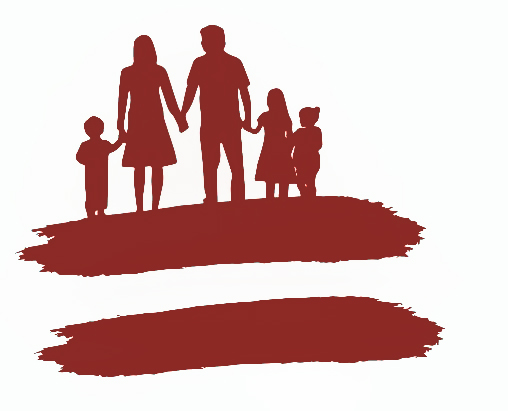Referendum - the answer to those who want to redefine a family

The Baltic Pride sex festival, organized by liberals and LGBT ideologues, is the background against which the conservative part of the society has started the fight to preserve seemingly self-evident concepts – a mother is a woman, a father is a man and gender is a biologically determined fact. A motion has been submitted to the Central Election Commission for a referendum on strengthening the concept of the family in the Constitution.
This is not a sudden initiative, but a natural response to the persistent efforts of the LGBT community to change the understanding of the natural family as the basis of society. For years, the legislature has been debating the regulation of same-sex partnerships demanded by sexual minorities and their political lobbyists with some regularity. In fact, the discussion is about the right of people of the same sex to marry, to adopt children, but for those who do not want to get married, about the right to be considered a family in the same way. On the liberal side, this debate is based on a dry calculation. The LGBT community, as a compact, influential, and wealthy electorate, is able to provide both the votes needed for parliamentary elections and money for political activity.
The court opened Pandora's box
Until the end of last year, the conservative flank of the Saeima without great difficulties rejected the systematic calls to redefine the traditional understanding of the family following the demand of the LGBT community. Whether it was submitted through the Mana balss community initiative platform or came from a politician longing for power and free benefits like Juris Pūce.
However, everything changed at the end of last year, when the Constitutional Court with its decision opened Pandora's box. Paternity leave for fathers was granted by a court judgment to a woman who is not the child's mother and, even more, is not the child's father. And such an interpretation of the Labor Law now requires a fundamental change in the understanding of the family in all related regulatory enactments and in the country as a whole. So now we are talking about a real threat to the institution of family and marriage.
LGBT is rejoicing too early
After this turn of events, the conservative part of the society reacted. The initiative “On the Protection of the Natural Family in the Constitution of the Republic of Latvia” was submitted to the Mana balss platform, but it was not adopted on the basis of the same Constitution judgment. In this undemocratic way, people were denied the opportunity to vote for a collective opinion. At the same time, the National Alliance (Nacionālā apvienība) submitted a proposal to the Saeima to amend Article 110 of the Constitution, strengthening the concept of family therein. However, after the bill has been submitted to the commissions, further progress has stalled, as the parliament, following the order of the Constitutional Court, must now consider how to ensure the privileges requested by same-sex partners, while not discriminating against the majority of society. It is quite possible that this Saeima, which has only one year left until the end of its term, will not be able to amend the Constitution at all. The LGBT community has already begun to celebrate victory and has the slogan "Until we are all equal" as the central message of this year's Baltic Pride sex festival! However, same-sex couples are unable to have children.
Cultivating same-sex relationships and equating them with a family will lead the country to a demographic standstill.
These men have a backing
Due to recent events and circumstances, a real public initiative has taken place for a referendum on strengthening the concept of family in the Constitution. The formal submitter of the draft law in the Central Election Commission is the Latvian Men's Association, which unites conservative-minded and well-known men. Such as historian Harijs Tumans, psychotherapists Jānis Ozols and Viesturs Rudzītis, professor Leons Taivans, architect Ingurds Lazdiņš, businessman and head of the association Andars Ignacs. But behind these men stands a much wider group of like-minded people who support the memorandum on strengthening family values. By the end of June, 105 NGOs, 78 congregations, 59 companies and 4,675 individuals had joined the memorandum. So there is strong support for the idea of a referendum. It is possible that this will facilitate the progress of the amendments already submitted to the Saeima. It is possible that this will go its own way to reach the result. What kind of result? Time will tell. The first point of reference will be the permission of the Central Election Commission to start collecting signatures for the referendum. In case of a positive decision, the first threshold to be overcome is 155 thousand votes over a year.
The current wording of Article 110 of the Constitution:
"The State shall protect and support marriage - a union between a man and a woman, the family, the rights of parents and rights of the child. The State shall provide special support to disabled children, children left without parental care or who have suffered from violence.”
New wording prepared for the referendum:
"The State shall protect and support marriage - a union between a man and a woman - and a family based on marriage, kinship or adoption. The State shall protect the rights of the child, including the right to grow up in a family based on a female mother and a male father. The State shall protect the rights of parents and their freedom to provide upbringing for their children in accordance with their religious and philosophical beliefs.
The State shall provide special assistance to children with disabilities and their caretaking parents, children left without parental care or who have suffered from violence, large families, and mothers and fathers caring for children without another parent.”
*****
Be the first to read interesting news from Latvia and the world by joining our Telegram and Signal channels.